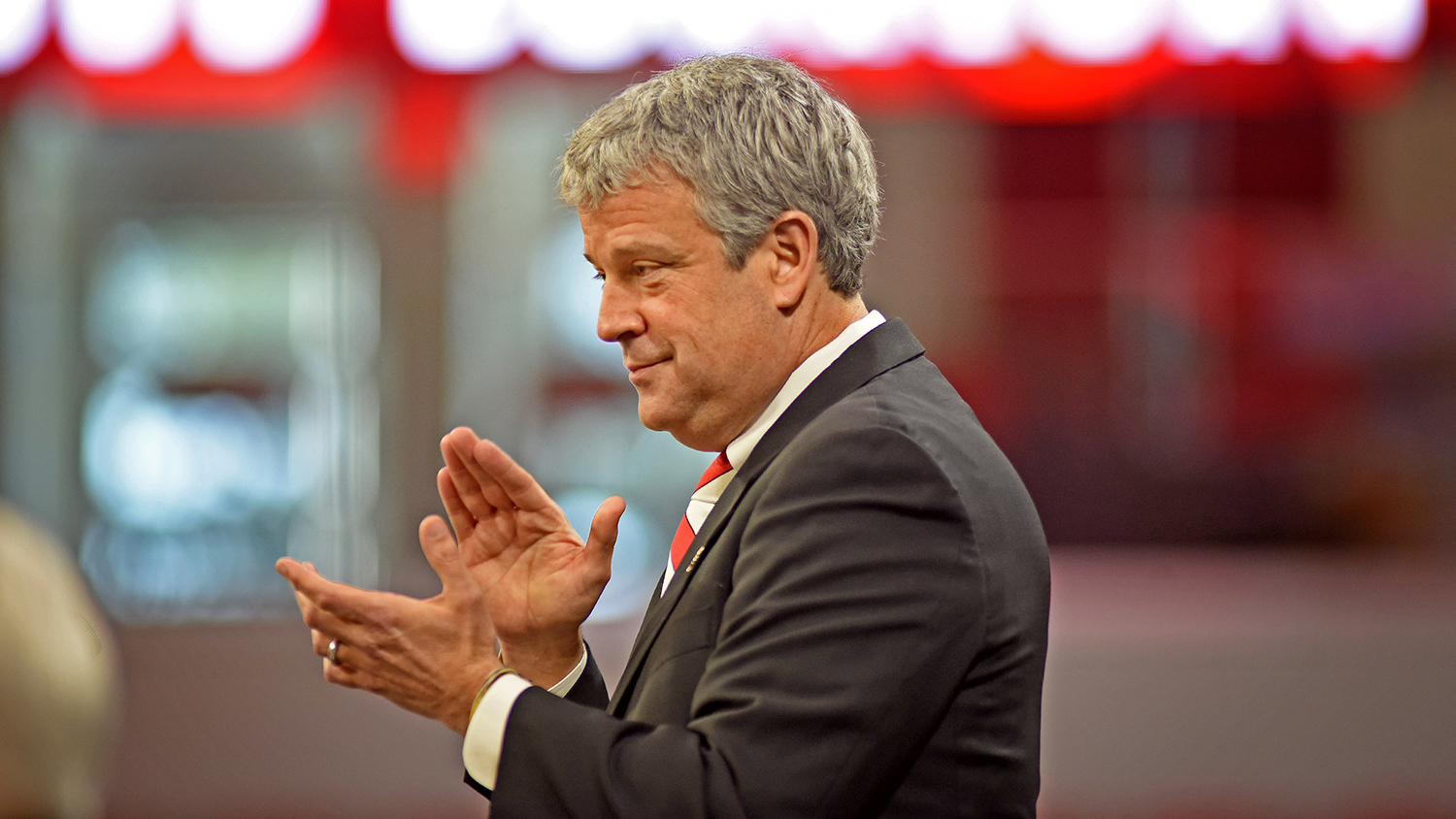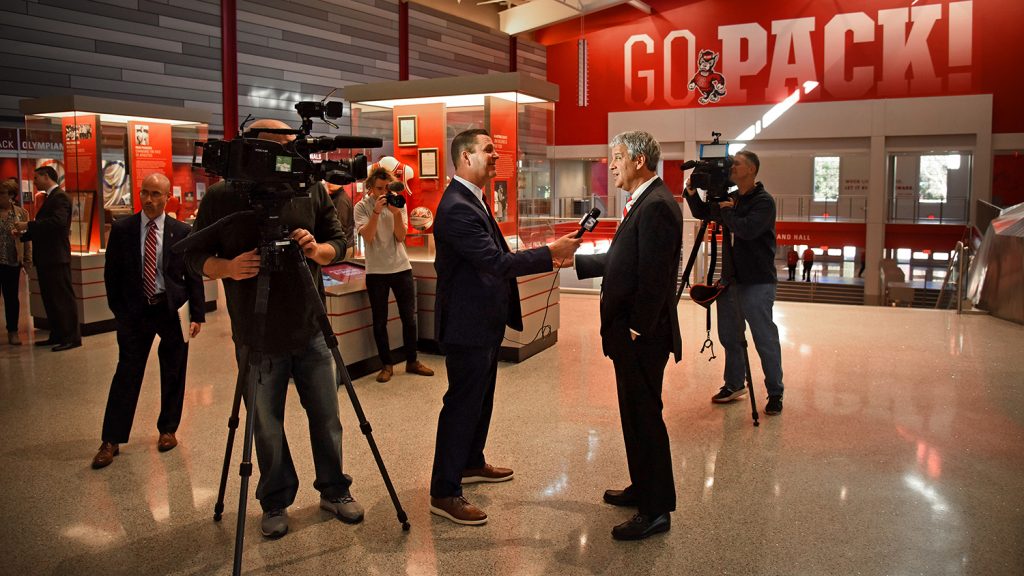Corrigan Keeps His Head in the Game
With sporting events on hold due to the pandemic, Athletics Director Boo Corrigan focuses on helping student-athletes stay on track academically and personally.

In his nine years as the athletics director of the U.S. Military Academy at West Point, Boo Corrigan learned a few things about tactics.
“You’ve got to worry about the 50-meter targets before you can worry about the 200-meter targets,” Corrigan says.
And that’s what he and his newly structured staff have been dealing with in the first month of the most surreal period of college and professional athletics in history.
Corrigan had just celebrated the one-year anniversary of being named NC State’s 14th athletics director on Jan. 30 when the first whispers of the novel coronavirus COVID-19 began to circulate. By mid-February, about the time the men’s swimming team won its sixth consecutive Atlantic Coast Conference championship, worries about a global pandemic caused Corrigan and his staff to halt ticket presales of a possible NCAA Women’s Basketball Regional at Reynolds Coliseum, just in case those games might be played without spectators.
As both the third-ranked wrestling team and ninth-ranked women’s basketball team paraded triumphantly into March, both winning ACC titles and both with high hopes of national success, the immediate landscape of college athletics collapsed. In the middle of the men’s tournament, the ACC halted all games. The NCAA postponed all its winter postseason competitions and its spring sports schedules.
Now, there are concerns about what sports will look like in the fall. Games in empty stadiums? Fans reluctant to return if allowed? Without ticket revenue, how will athletics maintain its $90 million operating budget and nearly $3 million in facility debt payments. With a potential recession-fueled reduction in donations, how will the Wolfpack Club pay $15 million in annual student-athlete scholarship funds?
For Corrigan, those are 200-yard concerns.
“You can always get caught up in the money, the money, the money,” Corrigan says. “For me, I think first and foremost about the people.”

In keeping with the four guiding tenets of leadership – trust, accountability, passion and empathy – Corrigan and his staff did what they could to help their approximately 550 college-age athletes cope with the unprecedented change.
“The thing we had to do first was grieve with people,” Corrigan says. “The only group I got to meet with before everyone was sent home was the wrestling team. Coach [Pat] Popolizio allowed me to talk to the team and you could just see the pure emotion of it all, how disappointed and crushed they were. All I could do was say that I’m really, really sorry.
“This is not something we are doing to you.”
He’s spent the last month dealing with the 50-yard concerns: Specifically, making sure every student-athlete returned home safely or had appropriate housing, is set up with technology to continue with online learning and has the resources needed to be successful in a unique time in world history.
“I need to make sure that to the best of our ability, our student-athletes have the resources, like Pack Essentials and the Student-Athlete Emergency Fund,” he says. “We have to have make sure those with food insecurities or housing insecurity are taken care of. I’m not worried every minute about what is going to happen in the fall.
“We have been worried about making sure athletics is doing well academically in the spring, then move into more online classes in the summer and then be really focused on getting everyone back here safely in fall.”
There is no blueprint, of course. The last time NC State athletics was similarly swamped by a worldwide pandemic, its athletics director — football coach and baseball coach Harry Hartsell — was drafted into the U.S. Army for service in World War I, leaving his successful but financially struggling department in the hands of 28-year-old Tal Stafford, to be the athletics director and the head coach for football, basketball and baseball. Even then, under the effects of the Spanish Flu pandemic that claimed the lives of 13 students and two infirmary nurses, school was not canceled.
The department survived and rebounded quickly, even though it was on a microscopic scale of today’s world of college athletics.
Corrigan firmly believes that will happen again. He doesn’t have all the answers at the moment, but he is in constant contact with university leadership, with his administrative staff and with his coaches. He can’t wait, though, to be back with the Wolfpack fanbase that he connected with last fall in his first few months on the job.
His primary message to them is simple.
“Stay engaged,” he says. “Find a positive story and share it. We talk about the strength of the Pack, but we have to find a way to continuously strengthen the Pack, because one day we will be back in Carter-Finley Stadium, in PNC Arena and Reynolds Coliseum or our other facilities.
“When we are, we are going to celebrate this great institution, we’re going celebrate each other and we are going to celebrate our accomplishments.”
- Categories:


